Marketplace Memo #15
OpenAI Launches Apps, Purchasing and Jobs, Lime Hits 1B Trips, Faire Projects $500M Revenue, Scale AI Sues Mercor, Kalshi Raising at $5B, Polymarket at $10B, Mercor at $10B+ And Much More!
Hi, it’s Colin! Welcome to the 324 new subscribers who have joined Take Rate since the last Marketplace Memo. I am excited to have you join the 4,100+ marketplace founders, operators, and investors who subscribe. Join the fun! 👇
👋 Welcome to the 15th edition of the Marketplace Memo. My goal is to share curated news, content, and stories related to marketplaces, along with a splash of my own color. Please enjoy and share with others!
I apologize for the slight posting hiatus. I have been heads down with the launch of Yonder and focused on finishing fundraising before my final close of the fund in December. 🎉
Thank you for all the love on the announcement, which got about 50K views! I can’t wait to share more.
Brought to you by me!
Yonder – Investing early in marketplaces that build new economies
The fund announcement brought so many new excellent LPs to the fund that I wanted to keep expanding the network. If you are interested in being an LP, please reach out to me at colin@yonder.vc or submit your interest below. I am closing the fund in mid-December.
Everything Becomes a Marketplace Vibe
If you build a platform where people gather, you’ll eventually start charging rent. AI platforms are no exception.
Two weeks ago, OpenAI announced that you can now buy products directly from ChatGPT, starting with Etsy and expanding to Shopify merchants via their new Agentic Commerce Protocol built in partnership with Stripe. They quickly followed, announcing they will also be adding Walmart products, a stark juxtaposition to Amazon blocking AI agents from crawling their products. ChatGPT has evolved from being a helpful AI assistant to 700 million weekly users and is now a nascent commerce platform. OpenAI also launched a jobs platform, and frankly, we should be expecting them to come after any vertical with scale and revenue potential.
This is the inevitable evolution we see everywhere: platforms aggregate demand, build trust, reduce friction, and then begin capturing the value exchange that occurs on their platform. Google did it with ads. Amazon did it with third-party sellers. TikTok did it with shopping. Now OpenAI is doing it with conversational commerce. The pattern is consistent. What makes this particularly interesting is the speed at which it’s happening and the high-stakes game for big brands of whether to partner with OpenAI or not (or with someone else).
Patrick Collison nailed it: “It’s clear that internet purchasing modalities are going to change a lot.” If your platform has daily attention and trust, adding commerce isn’t a question of if but when. The marketplace gravitational pull is too strong to resist, and the network effect it can build is undeniable. Today, it’s ChatGPT buying you a handmade coffee mug from Etsy. Tomorrow? We’ll see, but I guarantee it’ll involve a take rate (OpenAI is taking a merchant fee).
🔥 The Highlight
And if the above news wasn’t enough, the following week, OpenAI announced Apps in ChatGPT with direct integrations with Zillow, Instacart, Kayak, Redfin, and others through ChatGPT, making it even more of an aggregator. You can now house hunt, grocery shop, and book flights without ever leaving the chat interface (it is not perfect and a bit clunky from my testing).
On the surface, this appears to be OpenAI expanding its product suite. But look closer, and you’ll see the emergence of what I’m calling “headless marketplaces”. A headless marketplace is a marketplace where the traditional user-facing interface (website/app) becomes decoupled from the core marketplace functions. Users are increasingly accessing marketplaces’ inventory through third-party AI interfaces (such as ChatGPT, Claude, etc.) rather than visiting the marketplace’s own website directly. As AI chat interfaces become the default browsing experiences, websites become increasingly less important. Even Google is saying the open web is dying.
This isn’t necessarily bad for marketplaces, but it certainly is a departure. What is true, though, is that AI companies are not going to be in the business of acquiring real-world supply. They want other companies to do it and integrate via the Apps SDK. It is too messy for them, at least for now.
Marketplaces address real-world complexity by aggregating supply and organizing the physical world into consumable structured data built for commerce. This creates a fascinating symbiosis: LLMs need marketplaces to make the supply “LLM legible”. Marketplaces need AI interfaces for next-generation demand aggregation.
The winners in this new era will likely excel at two critical capabilities:
Supply acquisition excellence - Aggregating comprehensive, real-world inventory that can’t just be scraped from the internet (replaceable labor and digital asset marketplaces will likely be negatively impacted)
LLM legibility - Structuring data super well so AI agents can easily parse, understand, and present it accurately to users
The marketplace game is evolving. Websites will matter less; your supply network and data infrastructure will matter more.
And a laugh (or two)!
For all the founders out there…
Make the insanity stop, ARR does not stand for annual run rate! 😆
📰 News
“OpenAI launches Jobs Platform and AI certifications to expand economic opportunity” - OpenAI announced a new talent marketplace connecting AI-savvy workers with employers, alongside free certifications spanning beginner to advanced AI skills. The OpenAI Jobs Platform positions the company as a potential competitor to LinkedIn, creating an interesting dynamic given Microsoft’s $13B investment in OpenAI. OpenAI
“Uber-backed Lime breaks 1 billion trip milestone” - The shared micromobility marketplace reached 1 billion total rides since launch, posting $686M in net revenue (up 30% YoY) and $810M in gross bookings in 2024 while achieving four consecutive years of double-digit growth. The company is preparing for a long-anticipated IPO with Goldman Sachs and JPMorgan after attaining two years of positive free cash flow. Zag Daily
Faire targets $500M revenue in 2025 - The wholesale marketplace connecting independent retailers with brands is projecting to more than double its current ~$217M annual run rate, while recalibrating its internal valuation to $5B down from a 2022 peak of $12.6B. Previous funding includes $416M Series G in 2022. The Information
“Scale AI sues former employee and rival Mercor, alleging attempt to steal biggest customers” - Scale AI filed suit against ex-employee Eugene Ling and competing talent marketplace Mercor for allegedly stealing over 100 confidential documents containing customer strategies worth “millions of dollars.” TechCrunch
“X to open marketplace for dead and abandoned handles in next 30 days” - X’s Nikita Bier confirmed the platform will launch a marketplace allowing users to acquire inactive or abandoned usernames within the next month. The move could unlock value from dormant handles while creating a new revenue stream for the platform, though details on pricing, verification, and eligibility criteria remain unclear. It also hasn’t happened yet… X
“OpenTable launches all-in-one marketplace for private and group dining” - The restaurant reservation platform now enables diners to browse, compare, and instantly book private dining rooms and large group tables with transparent pricing and real-time availability. PR Newswire
“Kroger’s delivery expansion with DoorDash is bad news for Instacart, analysts say” - Kroger expanded its DoorDash partnership to all 2,700 stores nationwide, prompting Wedbush to downgrade Instacart to underperform as Kroger represents over 10% of Instacart’s gross transaction value. Instacart’s market share in grocery delivery has dropped from 70% in 2022 to 58% in 2024, and shares fell 6% on the news. MarketWatch
“Poshmark partners with Perplexity to offer free shipping promotion on Comet browser” - The resale marketplace teamed up with Perplexity AI to offer a limited one-time free shipping promotion for purchases made through the new Comet browser. The move comes as Poshmark also gains early access to Google’s new “Ask Stores” AI chat feature within Google Shopping. Value Added Resource
“Uber buys data labeling startup in push to sell AI services” - Uber acquired Belgian startup Segments.ai to strengthen its Uber AI Solutions division, which now sells data labeling services to external companies developing autonomous driving technologies. The Y Combinator-backed platform specializes in LiDAR and multi-sensor annotation for robotics and self-driving vehicles, helping Uber transition from using data labeling for its own operations to operating it as a marketplace connecting enterprises to global talent for AI training tasks. Bloomberg
“Pattern Group files for IPO showing revenue growth” - The e-commerce accelerator that resells brands’ products on marketplaces like Amazon filed for an estimated $400M IPO, disclosing $1.14B in revenue for H1 2025 (up 35% YoY) and net income of $47M. Bloomberg
“OnlyFans gross revenue rises 9% to $7.2 billion in 2024” - The creator platform reported $7.22B in gross revenue (fan payments to creators) for fiscal 2024, up 9% YoY, with net revenue of $1.41B and pre-tax profit of $684M. Growth has slowed significantly from the 118% spike in 2021 during COVID, though user metrics remain strong with creator accounts up 13% to 4.6M and fan accounts up 24% to 377.5M. Variety
“Amazon Autos launches in 48 US cities with Hyundai” - Customers can now browse, order, finance, and schedule pickup of new Hyundai vehicles from local dealers directly on Amazon, with transparent pricing and trade-in options, eliminating traditional negotiation. Amazon
“Airbnb’s Brian Chesky: AI Opens New Markets” - The Airbnb CEO discusses how AI is expanding what’s possible for their platform and allows them to do things like flights. Skift
“Live shopping app Palmstreet crosses 3 million order milestone” - The community-driven live shopping marketplace hit 3M orders in just two years, serving over 1M members across categories including rare plants, home decor, and collectibles. PR Newswire
“Bounce now has more locations than the top 3 hotel chains worldwide” - The luggage storage marketplace has surpassed 25,000 locations globally, exceeding Marriott, Hilton, and IHG combined. LinkedIn
“Highway buys freight marketplace to accelerate load board rollout” - Carrier identity verification provider Highway acquired Newtrul, a freight marketplace founded to compete with DAT and Truckstop.com, to expand its Trusted Freight Exchange (TFX). Journal of Commerce
“Fora acquires AI startup Legends” - The travel advisor marketplace Fora has acquired Legends to enhance its AI capabilities for travel planning and advisor support. Fun fact, I was Legends EIR when they were in Techstars! Fora
💰 Fundraising
Kalshi raises $300+ Million at $5B valuation; Polymarket secures up to $2B at $8B valuation - Kalshi’s funding came from Sequoia Capital and Andreessen Horowitz, marking a 2.5x increase from just three months ago as the prediction marketplace scales to $50B in annualized trading volume (up from $300M last year) across 140 countries. Days earlier, rival Polymarket secured investment from NYSE owner Intercontinental Exchange at an $8B pre-money valuation—up from $1B just two months prior—highlighting the growth in prediction markets following last year’s presidential election. (TechCrunch)
Crew raises $3M Seed - The tech-enabled gig services platform for short-term rental owners secured funding to scale operations and help property managers streamline their STR management. Multifamily Executive
Rare Candy raises $3.6M Seed+ from Konvoy - The collector-first marketplace for Pokémon cards (expanding to Magic: The Gathering) has seen monthly active users grow 30x since last summer by integrating deep collector tools within the buying experience. (Yonder portfolio company) Konvoy VC
Quince raises $200M led by Iconiq Capital - The direct-to-consumer luxury brand is now valued at $4.5 billion (double its previous valuation). Quince sources materials directly from factories that produce for luxury brands to offer high-quality essentials at accessible prices. Built In SF
Goodship raises $25M led by Greenfield Partners - Ryan Soskin announced that the sustainable shipping marketplace has raised a significant Series A to expand its eco-friendly logistics platform. LinkedIn
Garage raises $13.5M Series A led by Infinity Ventures - The YC-backed marketplace helps firefighters and public safety departments buy specialized equipment, automating the typically manual process of purchasing fire trucks and other gear. TechCrunch
Micro1 raises $35M Series A led by 01 Advisors - The AI data labeling marketplace, which connects AI labs with specialized contractors, secured funding at a $500M valuation. Micro1 has grown to $50M gross revenue run rate from $7M earlier this year. TechCrunch
Mercor eyes Series C at $10B+ valuation - The AI training talent marketplace is approaching $450M in annualized run-rate revenue (up from $100M ARR in March) and already generated $6M in profit in H1. Previous $100M Series B in February at $2B valuation led by Felicis. TechCrunch
Novig raises $18M Series A led by Forerunner - The sports prediction marketplace has grown monthly trading volume nearly 100x since September, surpassing $2B in annualized volume, with over 90% of trades now peer-to-peer. Novig
📖 Reads
“The $1T Opportunity to Build the Next Amazon in Retail” - Sequoia analyzes eight historical technological transformations of retail and forecasts five ways AI could create the next trillion-dollar retail company. The piece argues AI’s superpower, analyzing complex questions and providing consultation, will enable new models in categories like home improvement, where customers arrive with problems rather than specific products in mind. Sequoia Capital
“AI is a Technology Shift, not a Platform Shift” - Sameer Singh argues that AI lacks the key characteristic of true platform shifts: a network effect between technology adoption and product builders. Unlike the internet (browsers) and mobile (smartphones) eras, where new distribution channels emerged, AI is missing this distribution component, meaning traditional acquisition channels must still carry AI innovation, at least until a new scalable distribution method emerges. Breadcrumb VC
“AI x Commerce” - a16z breaks down how AI will impact commerce across five purchase categories, from impulse buys to life purchases. The key insight: AI is initially targeting low-value informational queries, but Google retains high-monetization commerce searches for now. The middle three categories (lifestyle, functional, and routine purchases) are most vulnerable to AI disruption. At the same time, marketplaces like Amazon and Shopify remain well-positioned due to their integrated commerce stacks and proximity to the point of purchase. a16z
“When Agents Attack: How AI Collapses and Rebuilds Marketplace Moats” - Casey Winters delivers a must-read analysis on how AI agents will disrupt traditional marketplace economics by collapsing the marketing funnel, intermediating transactions, and integrating directly with supply—forcing founders to rethink CAC, deepen supply relationships, and potentially go agentic themselves. Casey Accidental
“The Liquidity Problem in Prediction Markets: Part 0” - Claims of mass adoption of prediction markets are overly optimistic when viewed through the lens of market makers, who provide liquidity in all major markets. Binary markets are frequently unhedgeable and suffer from adverse selection, creating a professional market maker’s nightmare that threatens mass adoption versus alternatives like perpetuals with unlimited leverage. The piece argues that without makers able to provide liquidity, prediction markets face fundamental challenges despite the hype around platforms like Polymarket, Kalshi, and Limitless. X
“How to Build (and Explain) Cohort Charts” - A practical guide to building the three most common cohort visualization types: range retention tables, spider charts, and stacked cohort area charts. The piece breaks down when to use gross retention versus net dollar retention based on your business model. Includes templates to recreate each chart type. Mostly Metrics
“Ryan Petersen on building Flexport” - An insightful interview with the Flexport founder covering the freight marketplace’s evolution and future. The Generalist
“OfferUp Recommerce Report 2025” - Comprehensive research showing 93% of Americans bought something secondhand in 2025, with Gen Z leading the charge as resale moves from niche to mainstream; the market is projected to reach $300B by 2030. Recommerce Report
“Capital Allocation: Part I” - Morgan Hughes breaks down why capital allocation is fundamentally about making hard tradeoff decisions with limited resources and imperfect information. The framework introduces “risk-adjusted investing” at the initiative level, showing how companies should evaluate 2-3 strategic priorities rather than diffusing capital across many projects—using confidence levels to discount expected returns and build a portfolio that maximizes growth without running out of cash.
📽 Watch or Listen
“How Stanley Tang Built DoorDash with Speed, Conviction & Chaos | The Library of Minds” (Delphi Podcast) - DoorDash co-founder Stanley Tang shares how doing things that don’t scale became the company’s most significant advantage, revealing that operational excellence, not software, defined their success. Tang discusses the tension between speed and quality, DoorDash’s darkest moments, and how conviction guided decisions like spending 40% of their cash to do what was right for the business.
“The Travel Giant Built on Billions of Reviews | Steve Kaufer on TripAdvisor” (Kleiner Perkins) - TripAdvisor co-founder Steve Kaufer breaks down how the company became the internet’s trusted travel companion with over a billion reviews. Kaufer shares why early personalization efforts fell short and how AI is finally replicating what travel agents once did—understanding travelers but faster, smarter, and at scale.
“Sleeping in Parking Lots to $250M+ Revenue: The Handshake Story” (The Peel with Turner Novak) - Handshake CEO Garrett Lord shares the scrappy origin story of building the three-sided marketplace connecting 18 million students, 1,600 universities, and a million employers; from maxing out his dad’s retirement account and sleeping in McDonald’s parking lots to scaling past $250M in revenue. Lord discusses the explosive growth of Handshake’s AI data labeling business, key marketplace KPIs, and how AI is reshaping the job market for Gen Z.
“Ryan Petersen: Building the Global Logistics Giant Flexport” (The Knowledge Project Podcast) - Flexport CEO Ryan Petersen breaks down the hidden economics of tariffs and why they backfire by pushing factories overseas while raising costs twice. Petersen shares how Flexport survived freight rate volatility, which ranged from $600 to $20,000 per container, the retention math that caps marketplace growth, and the operational playbook for managing complex logistics systems, including the story of flying 500 million masks on grounded passenger planes during the pandemic.
“Mercor CEO & Co-Founder, Brendan Foody: How They Grew from $1M to $500M in 17 Months” (20VC with Harry Stebbings) - Mercor CEO Brendan Foody shares how the AI talent marketplace scaled from $1M to $500M in revenue in just 17 months, making it the fastest-growing company in history and earning a rumored $10B valuation. Foody discusses how AI data providers differentiate in a crowded market, why evaluation benchmarks are problematic, the reality of revenue sustainability in AI companies, and his controversial stance that building a $10B company requires a 996 work culture.
“From Setback to Comeback: Joan Nguyen, Co-Founder of Bumo” (Behind Her Empire with Yasmin Nouri) - Bumo CEO Joan Nguyen shares how she built a nationwide childcare marketplace connecting families with thousands of licensed providers after raising over $10 million—despite pitching 200+ investors, losing her home in the LA wildfires, and pivoting to a virtual school in just eleven days during the pandemic. Nguyen discusses the challenges of scaling a three-sided marketplace in childcare, navigating survival mode versus thriving mode as a founder, and the resilience required to break through in a traditionally difficult category for venture funding.
Thanks for reading!
That is a wrap for the week! As always, please email me at colin@yonder.vc with any feedback or news I missed. Hot tips are always welcome. Please don’t forget to subscribe and follow me on X and LinkedIn for other great marketplace content. If you’d like to schedule a call, you can find me on expert marketplaces Hubble or Intro.
Tools I am using right now (with free stuff where possible):
Perplexity (AI search engine and browser) - One Month of Pro Free
Happenstance (AI network search engine)
Gamma (AI slide builder)
Granola (meeting/note-taking)
Wispr Flow (my fave voice tool)
Superhuman (email) - One Month Free
Manus AI (super powerful AI agent) - 500 Free Credits
Howie (AI scheduler)
folk (CRM that is so easy)
About Me:
Colin is a marketplace geek and the General Partner of Yonder, a pre-seed marketplace fund that invests in marketplaces that create new economies. He has also been a longtime advisor to marketplaces, helping them with product growth, monetization, liquidity optimization, and strategy. Previously, he served as the CPO/CRO at Outdoorsy and has worked at Tripping.com, Ancestry.com, JustAnswer, and the Federal Reserve.



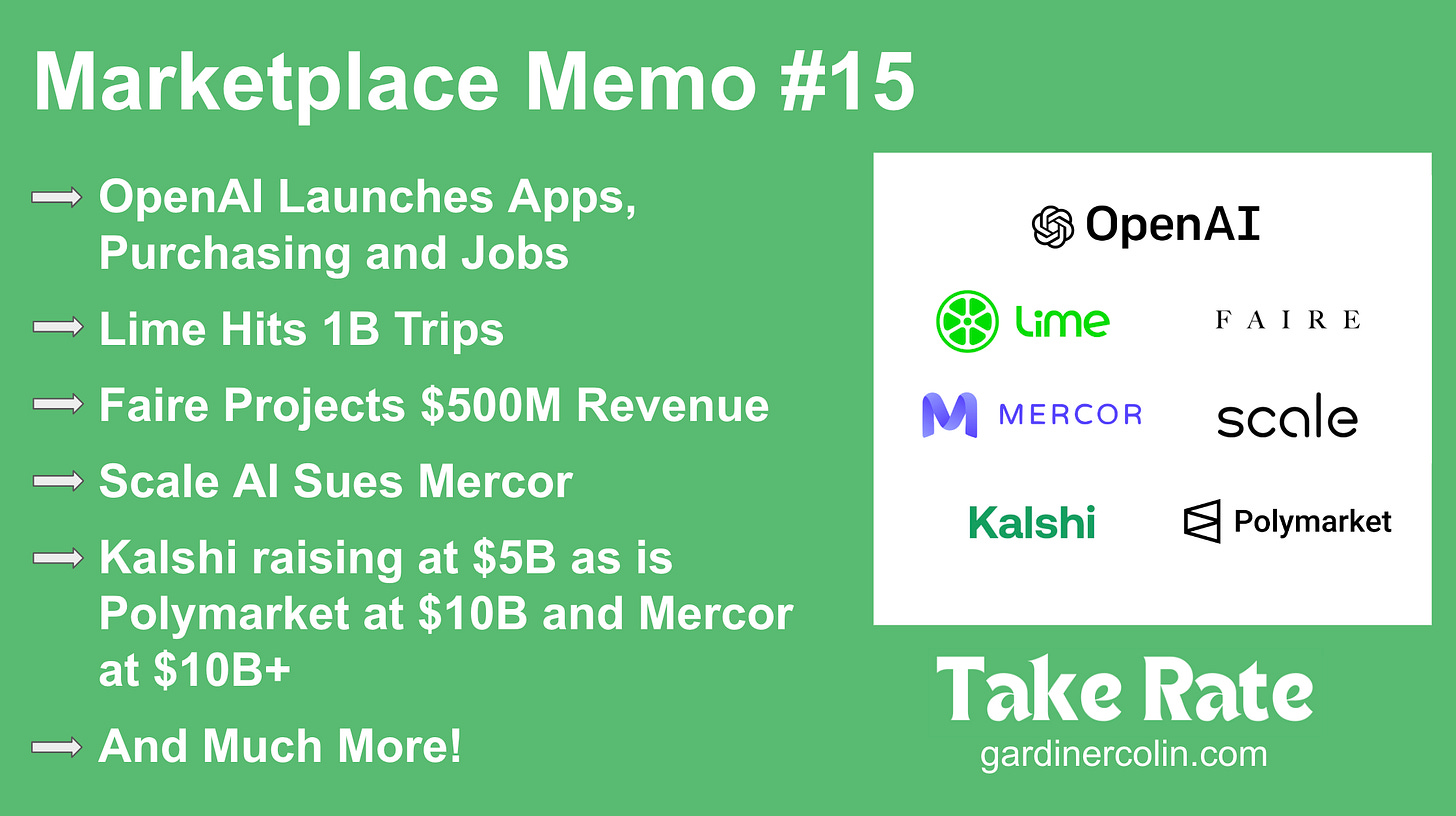

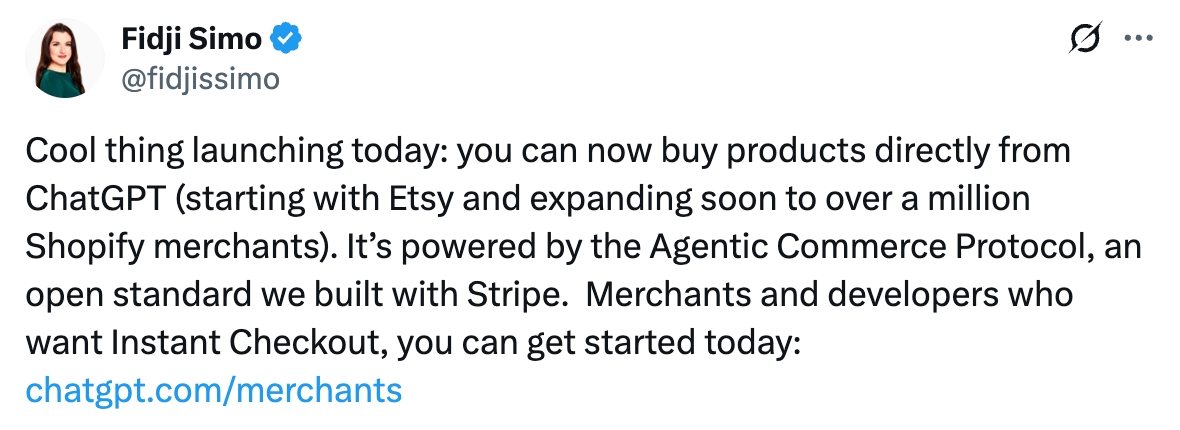
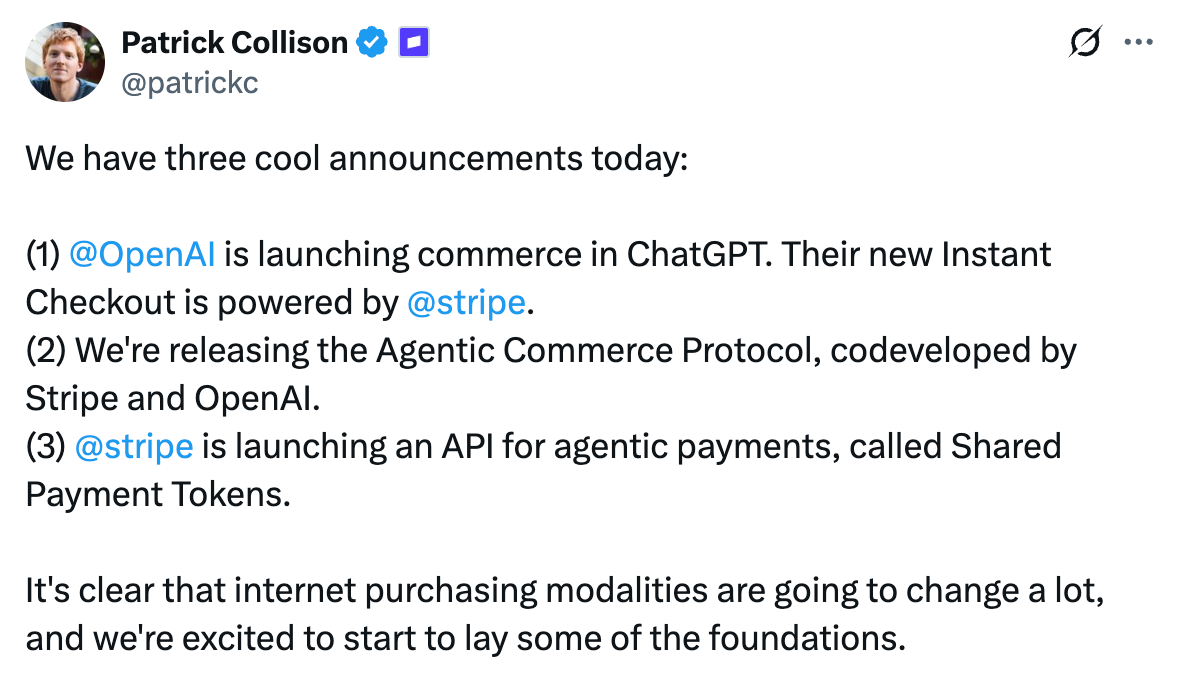

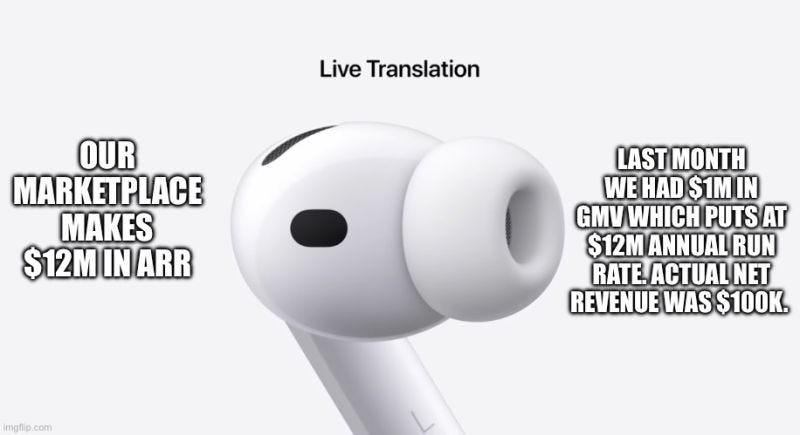
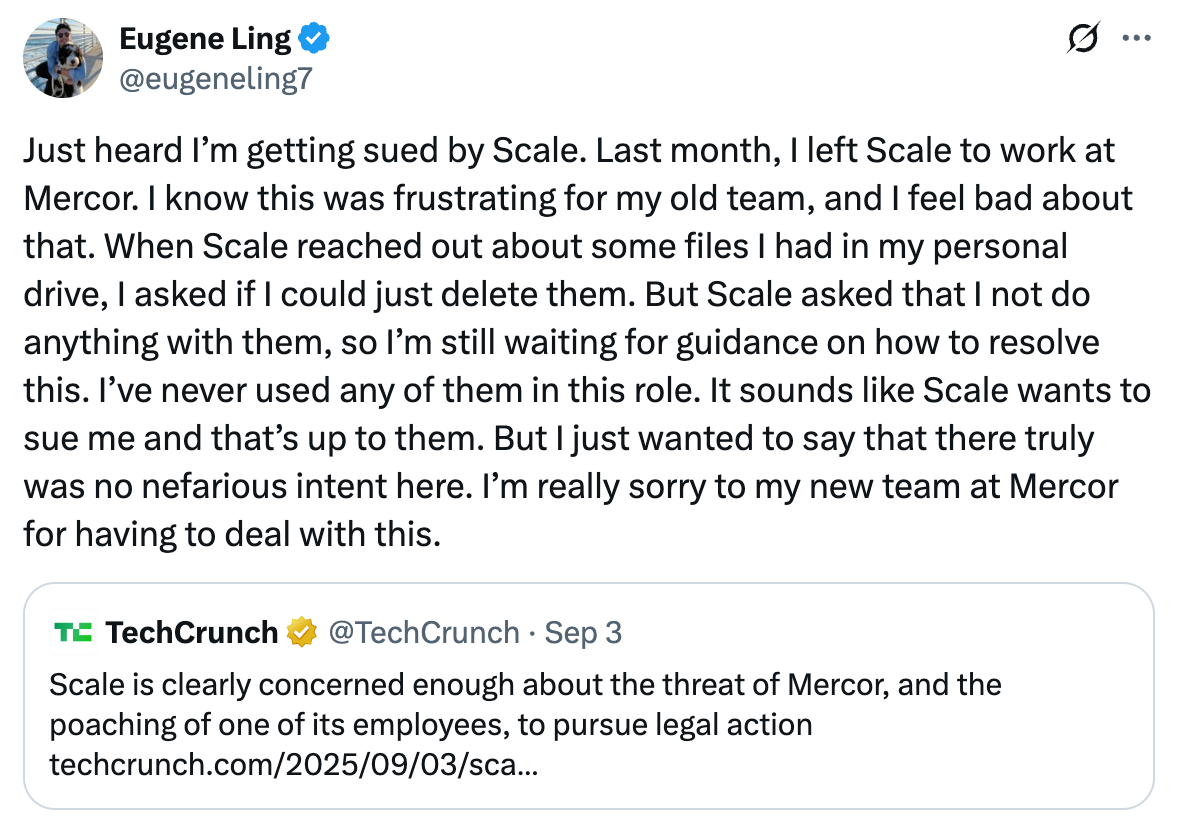
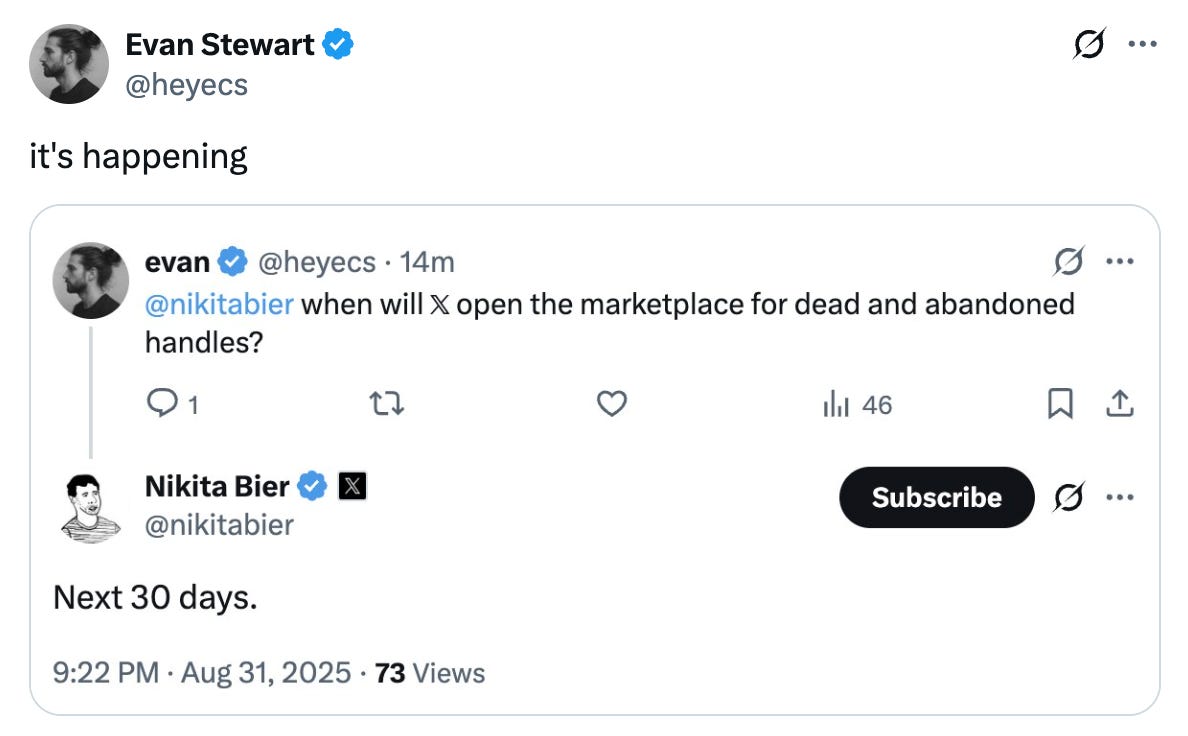
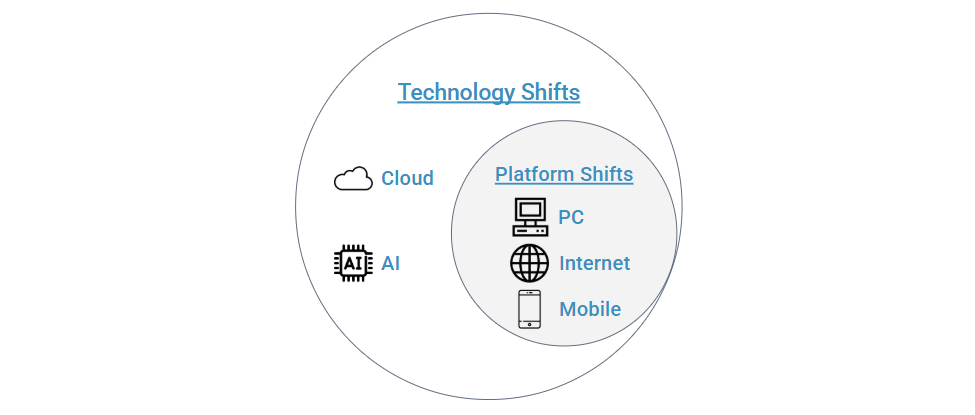
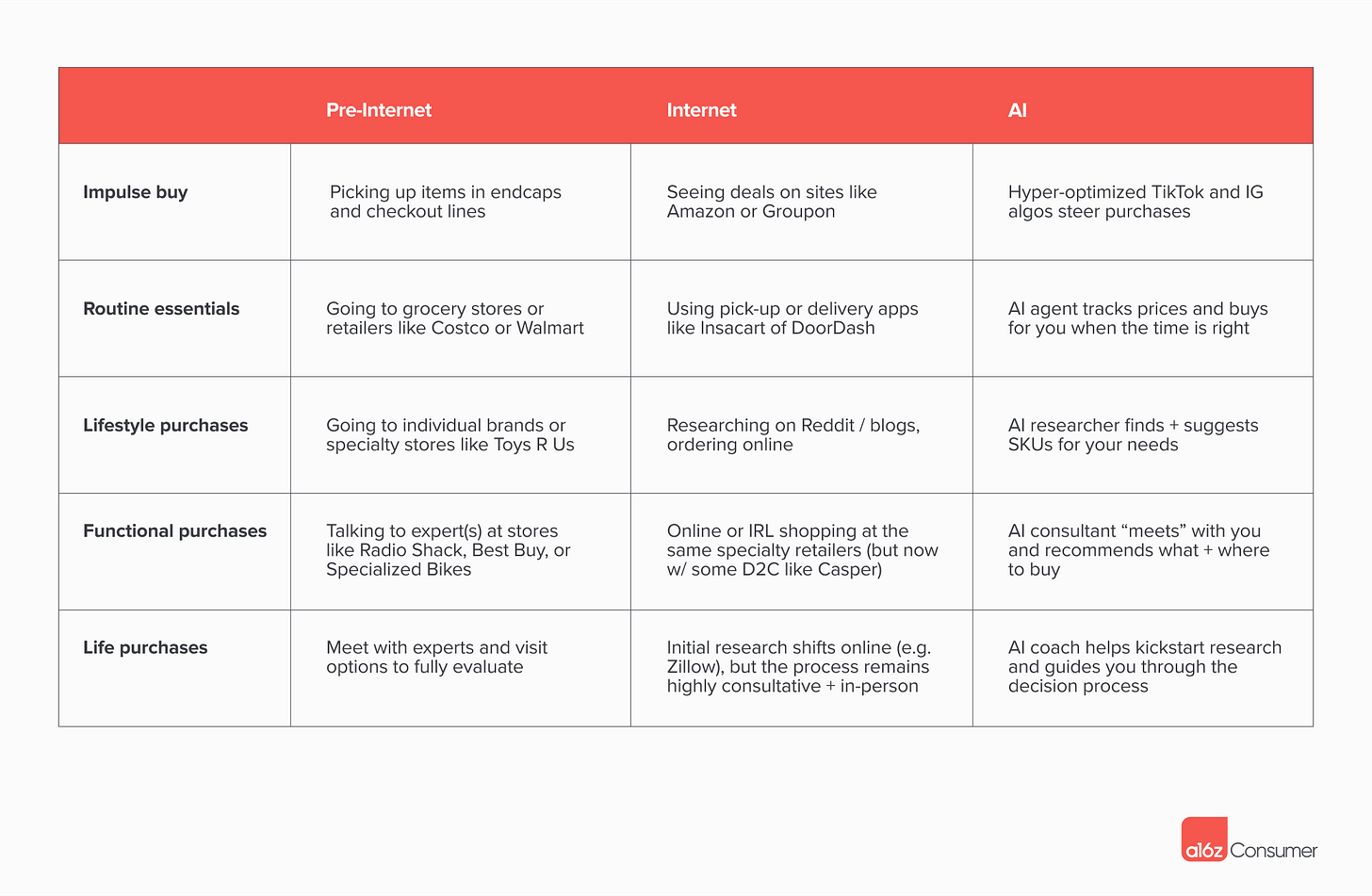
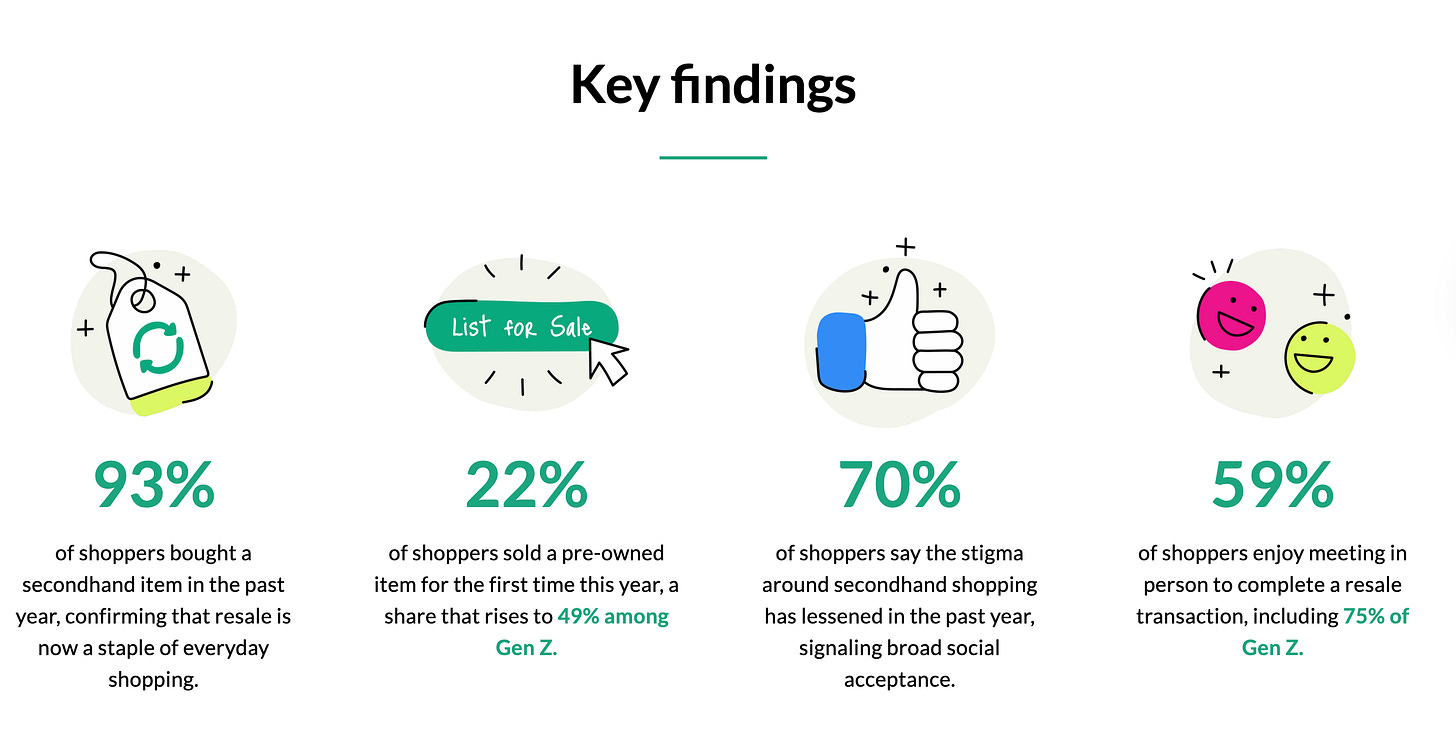

Great article. This is where we see marketplaces headed.
Brilliant edition. Thanks for sharing 🌟